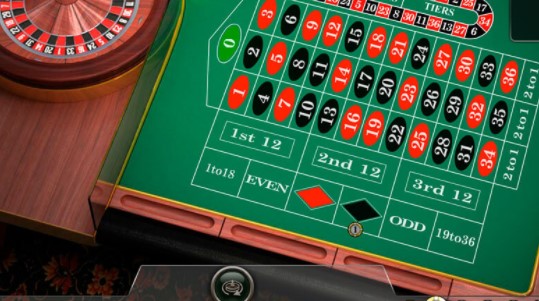
Poker is one of the multiple popular card games. It is enjoyed by everyone, from casual players to professional poker players who earn millions playing the World Poker Tournament. Although it is easy to learn, it can be challenging to master. It usually requires at least two players, but it can be played with up to six people at a time. You can play online poker if you don’t have as many friends.
Online poker is very much like the real thing. Online poker is played with a deck, but the cards are displayed on the screen. Each player can see his cards and place cards on the screen just like at a table. The website acts as the dealer and deals cards, bets, etc. Although poker rules can differ slightly from one site to the next, most websites provide similar rules and good tutorials on how you can play. Some sites allow single play. This allows the user to play against other players, while others allow for bots or virtual players. You can also choose to offer multiplayer options that will enable multiple players to play at the same table.
Poker is considered gambling in many countries. As such, it can be illegal to play for real money. It is illegal for online gambling sites that transact with financial institutions in the USA. Most of the most popular poker sites are offshore. However, many players can win large amounts of money.
You can use online services to send and receive money or wire transfers. Then you can play with chips in the same way you would at a casino. You can also play online poker with fake money if you are looking for fun. These games are usually played in your browser and are free to enter. It’s easy to find a match with the number of players available.
Online poker is a vast and complex industry with many shady players. Sites that do not allow real money play make their money by making a portion of the pot. Online professional leagues and matches are available, but they can be expensive to join. It would be most reasonable to be cautious about who you trust with your money. Sites are open and closed every day. It is best to stick with well-known communities. Online poker can be entertaining, provided you don’t get broke.
Anyone can play poker online.Net poker is something anyone can enjoy. It promotes fun and offers others the chance to make more. It is accessible to anyone worldwide, showing that online poker is a well-organized system.
These tables are easy to use for beginners. You’ll also find the most recent stories about Australian poker competitions, the best online poker sites, and basic guiding principles. There will be many videos from the competitors and interviews with the top players.
The Australian Poker Championship (also known as Aussie Millions) is the richest poker tournament in the Southern Hemisphere. It has more than AU$7M of prize money. Since 1997, it has been held at the Crown Casino in Melbourne. The competition offered a pre-prize of AU$2M in 2009, making Aussie Stewart Scott a millionaire.
There are some online poker tournaments for those who can’t travel far. A standard, or the pair of jacks as a starting point, makes it easier for casual players to resolve how good their hand is. These and other glamorous casino competitions can be found at Poker-online, an Australian poker forum.
Here are some tips for unknown players of poker.
It is normal to feel nervous when encountering a noisy, flashy, and loud environment. But poker is poker. A person is responsible for seating the players at each table in a casino poker room. You can approach them to find out what games they’re playing and if there are seats left. They will either put your name on a waiting list and notify you when there is a seat available or seat you immediately if they are lucky.
You may be asked to purchase chips from the chip cage before going to the table. You may also be instructed to buy chips directly from the dealer. The floor person will direct you in the right direction, regardless of your preference. They will let you know the minimum and maximum buy-Finsbury-ins for each table.
The dealer will be happy to help you in any way. You might need to place a blind wager once seated to enter the action. This is required in some rooms, while others don’t. You may also require to wait until the dealer button is passed before you can be dealt into a game. This is a common practice in different rooms.
Here are some poker rules to help you get the best out of your hand.
Take it one at a time. Even if you already know that you will fold, wait until your turn before acting. Some players have an unfair advantage by working ahead of time. You will be advised by the dealer when it is your turn to act. This can be done either by gently prompting or looking directly at you.
You can verify that you intend to act by tapping or gently knocking on the table. This is a signal to the dealer, and it allows you to refrain from speaking or giving out information to your opponents.
Declare your raises. The dealer might think that you only put enough chips up to call the bet and will move the action to the next player. You have two options when raising. You can declare how much you would like to introduce and move your chips into a pot. Two, you can move your chips one time. It is impossible to keep moving your chips in one direction between your stack of chips and the pot. This is called a string wager, and it is not allowed.
A player who doesn’t have enough chips to place a wager may choose to move with the dealer. Another reason to declare raises. It doesn’t necessarily mean that someone is getting a raise if they move in more than it costs to dial.
You can only play casino poker for your table stakes. You cannot place a bet if the money isn’t at the beginning table. If your chip stack is low before the hand is dealt, rebuy. Do not wait to find pocket Aces before you buy more chips.
Online poker is different. You don’t need to stress about your cards. You must protect your cards in a casino. You will see people placing objects or chips on top of their cards. Protect your hand by positioning a chip over your cards. This prevents your cards from getting acidic.
The muck can be poison. If you muck your hands, you can’t retrieve your cards. If you think you have no opponents at the end, and you misunderstand believe that there are, you can’t recover your cards. This could cost you your pot.
Let the merchandiser do it if you have any questions about declaring your hands.
In the sprawling world of card games, poker emerges not just as a game of sheer luck, but as a fascinating ballet of psychology, cunning, and intuition. Fresh-faced beginners might grapple with getting a hang of the basic rules, but those seasoned in the art revel in its intricate strategies. They peer through the veil of mere cards, keenly watching, deducing, and waiting for those subtle giveaways – the tells.
A Historical Tapestry
If we traverse back in time, we’d see poker’s roots winding through continents and epochs. The 16th-century Spanish game “Primero” was its earliest ancestor. Then, the French cradled it in their culture before the English took it, modified it, and introduced it to their sprawling colonies. What we recognize as poker today is a beautiful amalgamation of these myriad adaptations.
The Theater of Styles
Pull up a chair at any poker table, and you’ll witness a grand theater of playing personas. The bold and brash ones, constantly raising stakes, attempting to bulldoze their way through. The quiet strategists, who’d rather fold a thousand times, awaiting that one perfect hand. And then, those enigmatic souls, their playstyle as unpredictable as a roll of dice. Identifying these archetypes, and then molding your strategy in response, becomes paramount.
The Bluff – Poker’s Grand Deception
But oh, the bluff! It’s not just a mere facade of deception. It’s an intricate dance of reading human tendencies. By professing a strength, maybe even non-existent, through a bluff, a seemingly doomed hand can be the phoenix’s rebirth. However, tread lightly! If you get too intoxicated by the thrill of bluffing, savvy opponents might just see through the ruse.
A Tale of Two Arenas
Digital poker rooms and physical poker tables offer contrasting universes. In the echoing halls of brick-and-mortar casinos, every twitch, every pause, and every glance can be a telltale sign, a window into an opponent’s strategy. Yet, the digital realm, with its screens and avatars, hones a different skill set: deciphering strategies from just betting patterns and time taken.
Evolving with the Times
Poker isn’t static. It’s a living, breathing entity. Strategies evolve; some age-old tricks become obsolete, while others gain new shades. Modern game theory keeps adding fresh layers. To keep pace, immersing oneself in poker literature, digital forums, and tracking the journeys of poker stalwarts is pivotal.
The Global Playground
The Australian Poker Championship, with its glitz and glamour, is just the tip of the iceberg. Delve deeper, and you’ll discover global behemoths like the World Series of Poker in the neon city of Las Vegas or the European Poker Tour, a confluence of diverse players and tactics.
The Final Showdown
Whether it’s the tactile feel of chips at a casino table or the clicks and taps in an online room, poker’s soul remains unchanged. It’s an intricate tapestry of skill, foresight, and, yes, that pinch of serendipity. As you navigate from greenhorn to guru, remember: every card dealt, every bet made, is a chapter in the grand story of learning. Relish the hurdles, toast to the triumphs, but above all, play with sagacity and responsibility.

